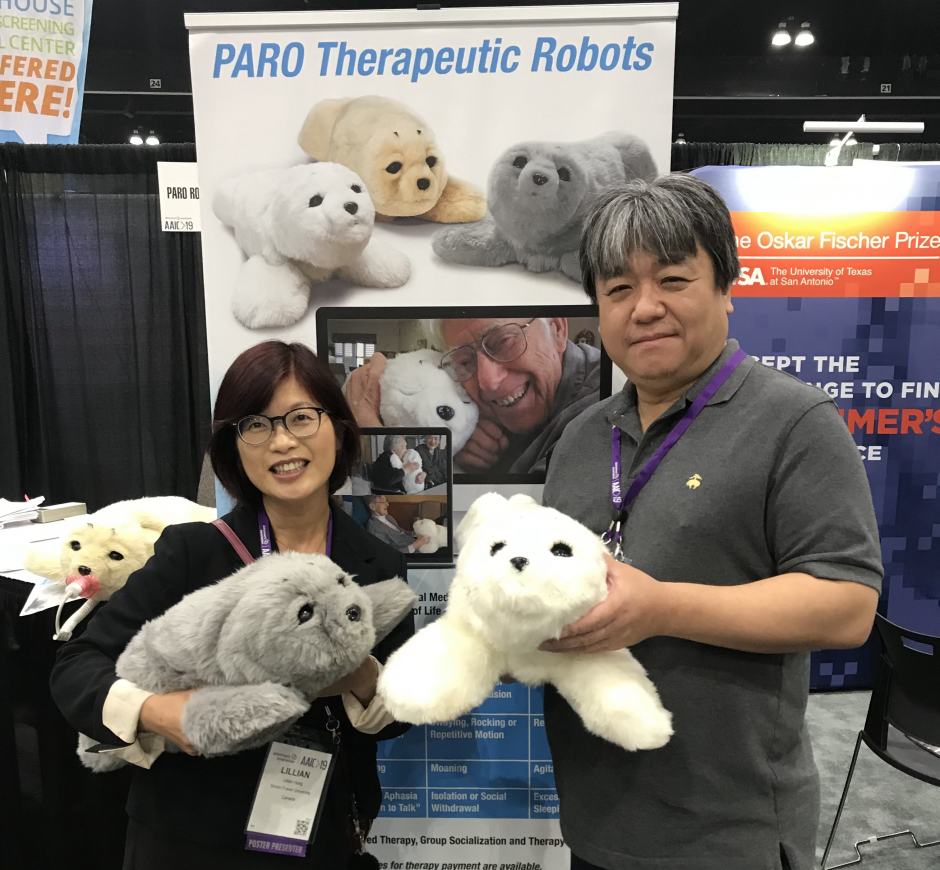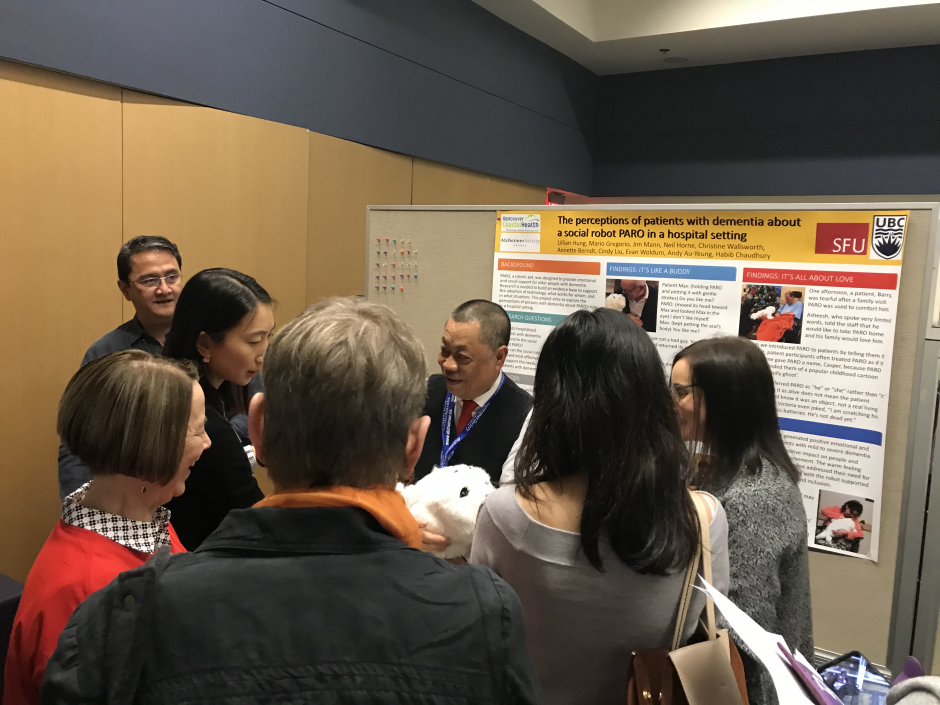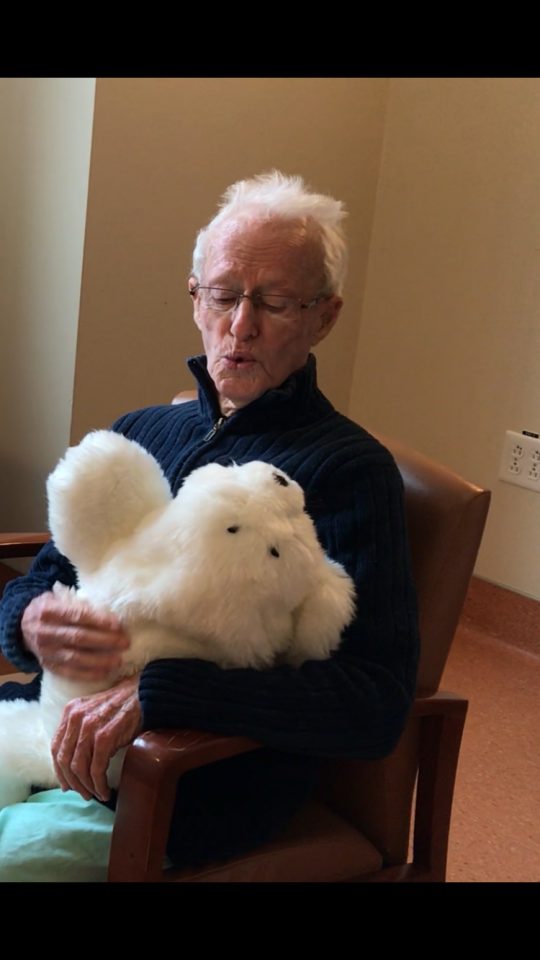
PARO Robot
The growing prevalence of older patients in hospital wards demands clinical leaders find innovative ways to meet the needs of this population. PARO, a robotic pet seal, was designed to provide emotional and social support. Interaction with PARO can improve moods, motivation, engagement, anxiety, loneliness, depression, and pain as psychological effects, improve stress and blood pressure as physiological effects, and encourage communication and improve sociability as social effects.
Previous research has found PARO helpful for older people with dementia in long term care and community settings. Still, there is a lack of evidence to inform how the social robot may be used meaningfully and effectively in hospitals for patients with dementia and delirium.
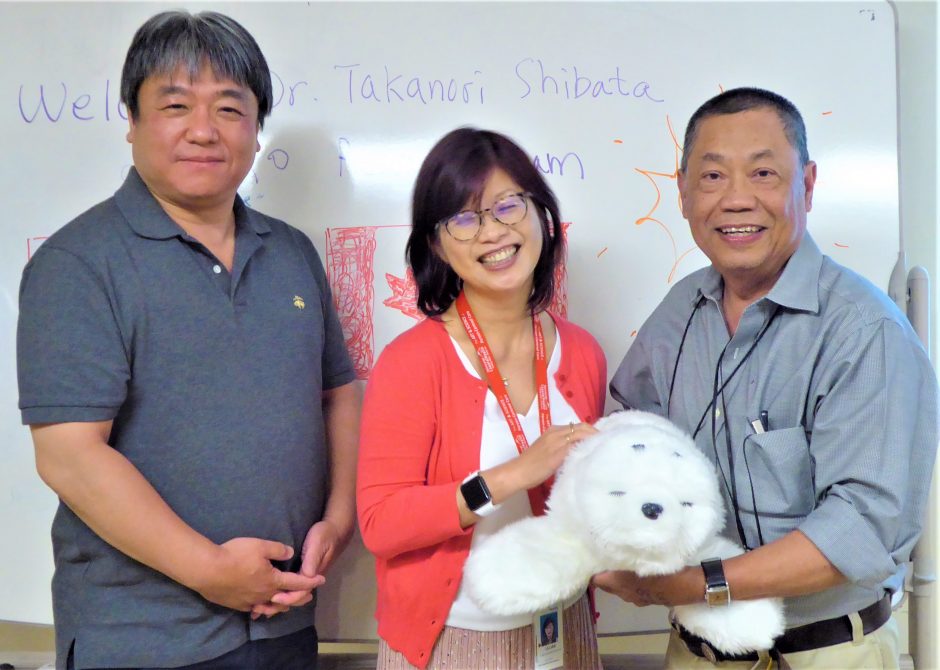
Our Research
We applied video-ethnographic methods, including conversational interviews and observations, with video-recording among patient participants with dementia and/or delirium while they were staying in a large urban Canadian hospital. We also conducted semi-structured individual interviews and focus groups with nursing staff to gain contextual information.
The results offer useful insights into the potential of robotic use to promote safety and quality of care in hospital wards. Our lessons learned help provide a new and better understanding of the possibilities to apply robotic pets in hospital care for patients with dementia and delirium.
Want to read about our results in detail? Our paper reports our experiences of applying PARO in clinical care to support safety and quality of care in hospital wards. Read here.
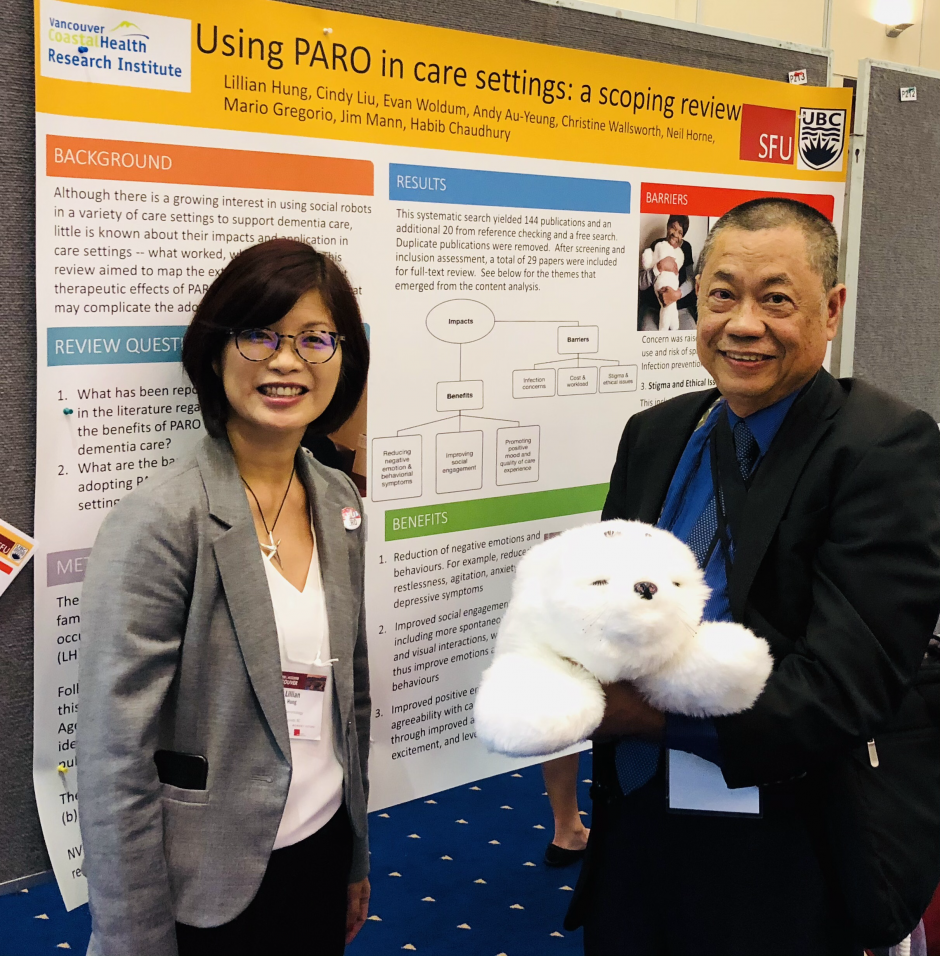
Our Team
Our Paro team worked with patient partners as co-researchers, gaining their valuable input throughout the whole study.
Team members: Lillian Hung, Cindy Liu, Evan Woldum, Andy Au-Yeung, Annette Berndt, Christine Wallsworth, Neil Horne, Mario Gregorio, Jim Mann, Habib Chaudhury. See our ‘About Us’ page to learn more about our lab members.


